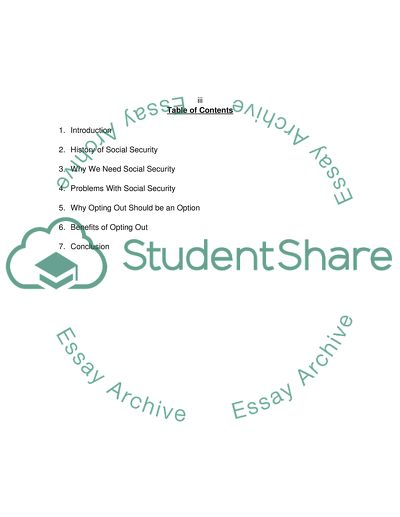Cite this document
(“Social Security research Essay Example | Topics and Well Written Essays - 3500 words”, n.d.)
Retrieved from https://studentshare.org/english/1617304-social-security-research
Retrieved from https://studentshare.org/english/1617304-social-security-research
(Social Security Research Essay Example | Topics and Well Written Essays - 3500 Words)
https://studentshare.org/english/1617304-social-security-research.
https://studentshare.org/english/1617304-social-security-research.
“Social Security Research Essay Example | Topics and Well Written Essays - 3500 Words”, n.d. https://studentshare.org/english/1617304-social-security-research.


